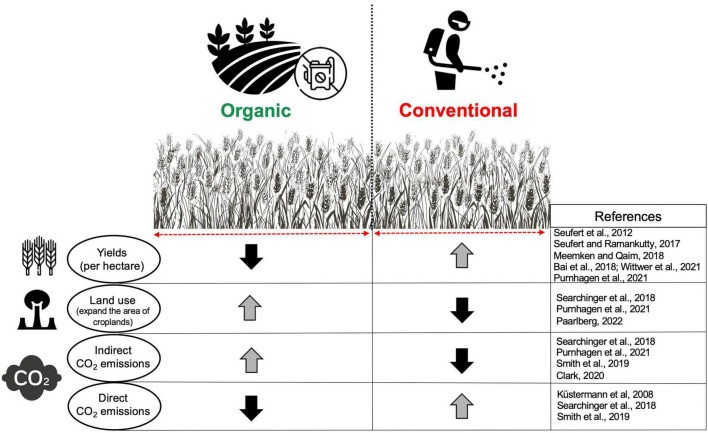Organic farming is gaining traction as a sustainable alternative to conventional farming. But how do these two approaches truly compare, especially regarding yield, environmental impact, and resilience in a changing climate? This article delves into the core differences between organic and conventional farming practices, examining their effects on soil and plant health, and exploring the potential of microbiome-based solutions for enhancing agricultural sustainability.
Core Differences Between Organic and Conventional Farming
Conventional farming prioritizes maximizing yield through the use of synthetic fertilizers, pesticides, and herbicides. While effective in boosting production, these practices can negatively impact soil health, biodiversity, and water resources.
Organic farming, conversely, focuses on building soil fertility through natural methods like composting and cover cropping. It prohibits synthetic inputs, promoting biodiversity and minimizing environmental harm. However, organic farming often faces the challenge of lower yields compared to conventional methods.
Impact on Soil and Plant Microbiomes
Soil and plant microbiomes play a crucial role in nutrient cycling, disease suppression, and stress tolerance. Research indicates that organic farming practices generally enhance microbial diversity and activity in the soil, leading to improved soil health and resilience.
Conventional farming, with its reliance on synthetic inputs, can disrupt these microbial communities, potentially reducing soil fertility and increasing susceptibility to diseases. The long-term effects of these practices on soil health and their capacity to withstand environmental stressors are a growing concern. Studies suggest that organically managed soils exhibit greater resilience to drought and other climate change-related challenges due to their enhanced microbial diversity.
Microbiome-Based Approaches for Sustainable Agriculture
Harnessing the power of beneficial microbes offers promising avenues for improving agricultural sustainability. Incorporating complex microbial communities into farming practices, rather than relying on single microbial inoculants, can significantly enhance plant health and resilience.
Research on soil memory and the stress gradient hypothesis suggests that leveraging the adaptive capacity of microbes from historically stressed environments could further bolster plant tolerance to adverse conditions. While promising, these microbiome-based approaches require careful consideration of potential ecological impacts and may necessitate policy changes to allow for broader application in organic farming.
Conclusion: A Holistic Approach to Sustainable Agriculture
The debate between organic and conventional farming highlights the complex interplay between yield, environmental impact, and long-term sustainability. As climate change intensifies, understanding the role of soil and plant microbiomes in building resilient agricultural systems becomes increasingly critical.
Integrating microbiome-based solutions into organic farming practices holds significant potential for bridging the yield gap and promoting a more sustainable and resilient agricultural future. This requires further research into the complex interactions between agricultural management, climate change, and microbial communities. A holistic approach, encompassing both ecological and economic considerations, is essential for shaping a future where agriculture can thrive without compromising the health of our planet.


